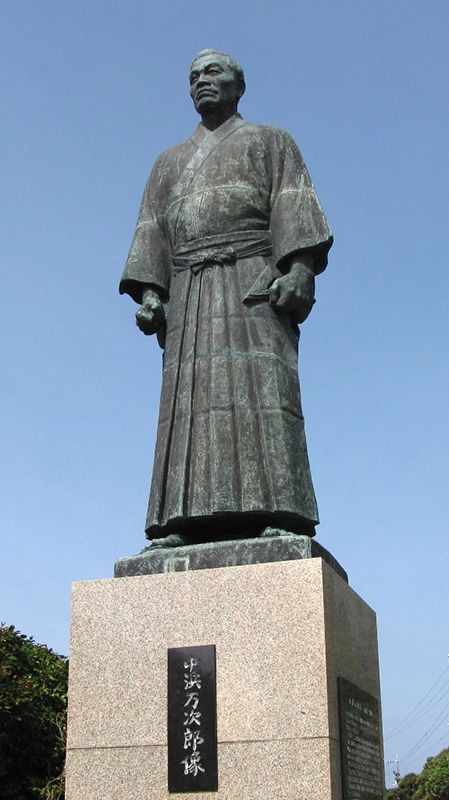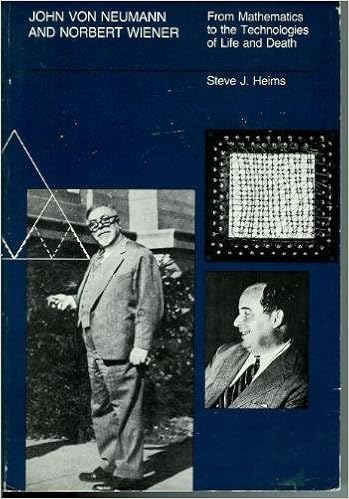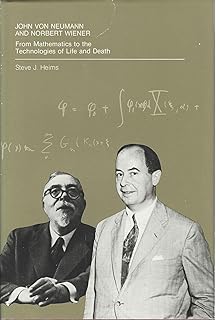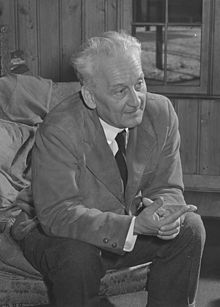《好萊塢如何征服全世界:市場、戰略與影響》 到 《Red Carpet: Hollywood, China, and the Global Battle for Cultural Supremacy》 Book by Erich Schwartzel
內容簡介
贏得票房業績的好萊塢大片為何不參加夏納電影節?
外國演員為何在好萊塢電影中往往飾演邊緣角色?
好萊塢如何確保其世界範圍政治立場的正確性?
美國電影既影響了世界,也深受世界的影響,好萊塢的發行策略和製片選擇越來越受制於國際觀眾的喜好。絕大多數在好萊塢的製片公司已經成為世界性企業,美國的電影工業則是一個專門研究全球化機制的實驗室。
本書作者密切追蹤好萊塢電影市場長達40年,對好萊塢七大電影公司,哥倫比亞、迪士尼、米高梅、派拉蒙、20世紀福克斯、環球和華納兄弟進行了激動人心的調查,形成了一項開創性的研究。本書對於理解全球化時代的電影市場極其重要,帶給讀者一次如同進入好萊塢帝國和現代夢工廠心臟的異乎尋常的旅行。
作者介紹
諾文·明根特,巴黎新索邦第三大學美國文明講座教授,電影、經濟學與英語社會研究小組聯合創始人。
目錄
引言
導論 什麼是國際市場?
美國市場和海外市場
1966年至1974年:制衡關係
1974年至1985年:內部市場的優勢
1985年至2004年:海外市場的復蘇
一個地理和經濟的領域
好萊塢巨頭對世界的劃分
戰略
市場的征服
封閉的市場
正在打開的市場
已開放的市場
大事記
封閉的市場,市場的關閉
市場的開放
市場的層次結構
第一部分 出口戰略
第一章 經濟戰略
戰略指導方針
高度集中
廣泛的全球網路
聯盟遊戲
存在與壟斷
具有變化性的能見度
壟斷行為?
第二章 文化戰略
吸引全球觀眾
用市場行銷還是用包裝去吸引
國外市場不同於國內市場
瞭解市場
……..
Red Carpet: Hollywood, China, and the Global Battle for Cultural Supremacy
Book by Erich Schwartzel
How China Used Hollywood To Build The World’s Biggest Film Market
Erich Schwartzel’s new book reveals how China censored Hollywood and took the industry’s best practices.
While watching Universal Pictures’ recent thriller “The 355,” Erich Schwartzel picked up on something that most viewers likely missed.
There is a scene -- a big shootout at the end -- that takes place in Shanghai. Just as the camera pans out, the Chinese police run in to restore order. “They need a moment where they show we’re here, you’re safe,” Schwartzel says. “The state has things completely under control.”
Schwartzel reports on the entertainment business for the Wall Street Journal, and has been writing about Hollywood’s relationship with China for the past several years. Schwartzel’s coverage has revealed how studios tailored their movies to please the Chinese government, and how Chinese companies hired some entertainment veterans to build up their own operations.
This exchange was mutually beneficial for a couple years, as U.S. blockbusters started making big money in China, while China became the fastest-growing film market in the world. But it didn’t take long for Hollywood’s self-censorship and pandering to look foolish. Hollywood’s share of Chinese ticket sales have plummeted in recent years, and now most studios are struggling to get a movie on the calendar.
The timing couldn’t be better for Schwartzel’s first book, “Red Carpet,” an exploration of Sino-Hollywood relations over the past 20 years. I spoke with him this past week about the book, recent tension in the relationship and his own reporting in the country.
When did Hollywood wake up to China’s potential as a movie market?
Around 2012-2013. Before that there were a couple moments that were wake-up calls, one of which was Avatar in 2009. When that made more than $200 million, that was a holy shi*t moment. In 2012, you had “Red Dawn” where a finished movie was changed because of China.
The next year 2013 is when you started to see some of the strategy take shape -- casting Li Bingbing in a movie or Chinese product placement.
How open was the Chinese market to Hollywood movies?
After 2012 it was pretty open because that was when the quota we renegotiated. China started allowing in 34 a year. That meant almost everyone got their biggest movies in.
It was obvious early on that China would censor movies. Did Hollywood not care, or did executives believe China would eventually loosen its restrictions?
A lot of times it was out of sight, out of mind. I would talk to executives who’d tell me things like… “We censor for all kinds of countries. We censor for airplanes. It’s something Hollywood has to do.”
The U.S. and China weren’t locked into this large macro rivalry. Censoring movies for economic reasons didn’t feel as political as it does today.
Were those arguments reasonable, or did China ask for more significant changes ?
China has a demand that other foreign markets don’t -- the ability to change movies elsewhere. China often requires Hollywood to change how movies are shown around the world. The examples in the 1990s are illuminating. None of those movies would be shown in China anyways. And yet China early on identified the power of Hollywood movies.
You write in your book about the many ideas that are obviously taboo, and then others that fall into a grey area. What are examples of both?
The really obviously off-limit stuff is portrayals of Chinese history that they don’t want to see. One of the reasons those Dalai Lama movies in the 1990s were so problematic is they were about Mao’s persecution of Tibet. It wasn’t just that they didn’t like valorization of the Dalai Lama but the stories required examination of a history that China doesn’t want to see on screen.
But then there are all these other murky topics and themes. There are so many rules that are said to be rules, and then China will make some exception. For the longest time there was a rule that time travel was not allowed. Then a Chinese movie released last year about a time traveling woman grossed like $900 million. No one can quite explain that.
What were the most egregious cases of altering a movie to please Chinese censors?
The ultimate case study was “Transformers: Age of Extinction.” This wasn’t in the book, but Paramount back then had a Chinese reality show competition where they cast four roles in the film. There is some very surreal YouTube footage of Megan Colligan judging this competition over in China. One-third of the movie is set in China or Hong Kong. It worked out quite well. It made more in China than it did in any other market.
Why is it a bad thing that Hollywood has altered its movies to gain entrance into China?
Making these concessions goes against the free expression Hollywood stands for. It also challenges this idea we’ve had since World War I that Hollywood would be the best advertisement for America possible. As China tries to export its movies and TV shows, it’s worth considering the values those will carry.
How would you assess the current quality of films made in China?
It’s certainly gotten more commercial. Within China, the audiences have responded to the country’s success with commercializing propaganda films and actually making pro-China narratives that are entertaining and fun to watch.
When I went to Kenya for the book, China still felt the need to pay to close the gap in appeal with American movies. A lot of villages in Kenya speak local languages; there are too few people to dub English language films into local dialects. Studios don’t see a purpose, so they subtitle. China stomachs the cost and will pay for that dubbing.
China wanted Hollywood to enter China in part so it could get its citizens to go to the movies. Why did China care if people went to the movies?
You go back to Mao and his thesis that all art should serve the state. That also explains why still to this day so much of Chinese movies is about messaging.
But then as China grew more capitalist it became an economic thing. All these cities were being built. All this development was being built. Movie theaters were begin constructed. They needed people to show up and buy tickets. American movies in the 1990s helped goose ticket sales for theaters that had to support broader real estate investments.
One of the big characters in your book, and of modern Hollywood, is Wang Jianlin, the long-time head of Dalian Wanda. How did he become the biggest player in the Chinese movie business?
Riding the wave of the Chinese middle class and building shopping malls to serve them. If you are in the business of shopping malls and living in a country with the largest internal migration to cities in human history, and what will soon became the world’s largest middle class, shopping malls are a good business.
A little under a decade ago, we saw this flood of money come into Hollywood. Which of those deals was the biggest head scratcher?
When the copper processing plant Xinke announced it was going to buy Voltage Pictures. They said at the time it was to guard against the softening of commodity prices. But Voltage was only known for “The Hurt Locker” and “Dallas Buyers Club” -- not movies Chinese audiences would embrace.
That, along with some of Wang Jianlin’s grandiosity, was what made Chinese leaders say we have to tap the brakes. This is clearly not about diversifying into a good revenue stream. It’s about getting money out of China.
If you are a Chinese entrepreneur and you see the collapse of Wanda, why do you even get involved in movies?
It’s such a balancing act. If you run a film studio, it’s fine to make commercial movies. But you better make patriotic films as well. If you look at the filmography of China’s biggest and top-ranked movie stars, they often have this well-calibrated balance between commerce and a party anniversary film.
China made a bet that its people wouldn’t care about repression or censorship if quality of life improved. It also bet that western movie studios would subject themselves to censorship if they got access to the market. It seems it was right on both counts. Did China get anything wrong?
No. I kinda feel like everything went almost according to plan.
When did you become interested in Hollywood’s relationship with China?
Right after I got the job covering Hollywood. I had to prepare a beat memo when I was applying for it. The first thing I said we should cover is China and China’s influence. I got interested in it around 2014. when I realized there was a political motivation behind a lot of this financing. It was not just dumb money.
Were Chinese executives wary of speaking with you?
Not as wary as you would think. There’s a real sense of pride in what China has pulled off.
What would it take for companies to stand up to China?
The companies are really out of step with public opinion. Public polling and political winds are shifting in a different direction than Western companies. Hollywood thinks it can duck and cover, but the thing that would really change the dynamic is if the shutting off to Hollywood movies keeps up. If it keeps up, there is no economic incentive to work with China.
What is the reason for the shut off?
It feels like one of final steps in China’s playbook with a lot of foreign partnerships – a replication and then replacement. That’s been happening for the past several years. But this past year has been particularly difficult and it’s hard to say why. China is turning inward.
Do Chinese executives feel like they don’t need Hollywood product anymore?
If you are running a theater in Beijing, you still want the Hollywood product. I’d be curious to see what is happening in terms of piracy for these movies. Are people finding other ways to see them? When the next Marvel movie gets into China, will this drought of release result in depressed enthusiasm for the overall franchise? — Lucas Shaw
The best of Screentime (and other stuff)
Disney avoids Netflix’s Wall Street problem
Disney+ ended 2021 by adding almost 12 million subscribers in the final three months, bringing its global total to 129 million. Those figures are well above what financial analysts had expected, and a sign that Wall Street’s great streaming freakout of a couple weeks ago was rash.
Netflix reported growth in line with forecasts. Disney+ reported numbers above forecasts. So did HBO Max, and so will Paramount+.
Now the reason Netflix stock tanked, dragging many others with it, was its forecast (and general commentary). The company said its growth has slowed, and it’s not sure why or how long that will last. That suggests to many skeptics that there is a cap on how big Netflix can get, and that all the competition is starting to have an effect.
Disney intimated it’s also going to slow down in the first half of the year. But it communicated this in a way that didn’t upset Wall Street. It didn’t forecast a number. It just slipped a comment about it in its call with analysts, and then said growth would accelerate in the second half.
The industry may be entering a new phase where growth is slower. But the five biggest streaming services added more than 100 million customers combined last year.
The most popular TV show in the world is…
The Super Bowl will be the most-watched broadcast of the year in the U.S., and should outdraw the Olympics worldwide. I am sending this out right before the game starts, so sharing some odds and ends that have nothing to do with the result:
- The Rams have more than quintupled in value since Stan Kroenke bought them in 2010. A Super Bowl title would only help matters.
- Three different crypto companies bought ads during the game, the latest sign of their efforts to reach the mainstream.
- Serena Williams will appear in an ad for Tonal, in which she is also an investor. Williams’ portfolio includes at least three companies worth $1 billion.
The estates of George Carlin and Robin Williams sued Pandora for copyright infringement this week, and accused the online radio service of stealing their work for years.
Comedians get paid for the recording of their comedy, but they don’t get paid a separate royalty for the written word. Musicians get paid as a recording artist and a songwriter, though covers of songs are more common than covers of jokes.
This is an interesting legal strategy, and one playing out across the industry right now. Spotify has taken down the works of some comedians who are asking for a similar royalty.
Netflix leads the Oscar nominations
This could be the year Netflix finally wins the Oscar for Best Picture. Jane Campion’s “Power of the Dog” earned the most nominations of any movie, and Netflix earned the most nominations of any company.“The Power of the Dog” has the best odds of any movie on the website GoldDerby, and it’s really not clear what other movie is its biggest rival.
Campion is the only women nominated for best director, but the we are seeing progress on equality behind the camera, according to Amy Yee. The percentage of women directing top-grossing movies reached an all-time high of 15% in 2020. (It slipped to 13% last year.)
Deals, deals, deals
Byron Allen, a stand-up comedian turned entertainment mogul, said he’s going to bid to buy the Denver Broncos. The team is expected to fetch more than $4 billion on the open market.
Allen says NFL commissioner Roger Goodell approached him a couple of years ago about buying a team, and the league could sure use its first Black owner. Allen doesn’t have that kind of money, but he knows people who do.
- Snoop Dogg acquired Death Row Records, the label that released his earliest albums.
- Sting sold his publishing catalog to Universal Music Group for about $300 million.
- The U.S. government blessed Discovery’s merger with WarnerMedia, and the deal should close in the next couple months.
- Moonbug thinks it has found the next CoComelon.
- Brene Brown said she would go back to recording her podcast, ending one of the most high-profile boycotts in this latest Joe Rogan controversy.
**
Wijipedia Red Dawn
Hollywood hasn't cast China as the villain in more than a decade. The story of "Red Dawn" explains why.

 この画像を表示
この画像を表示









